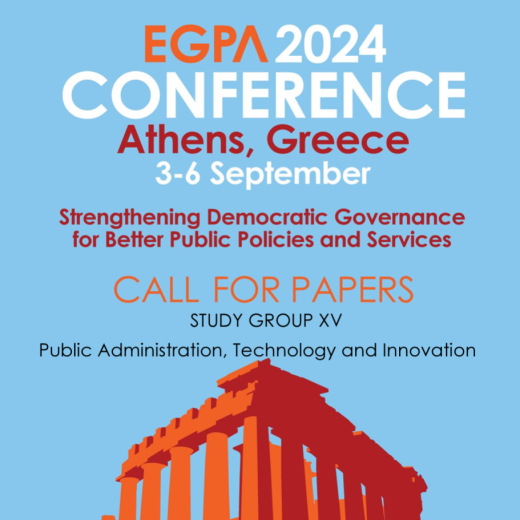
We invite scholars, researchers, and practitioners to submit papers that explore the multifaceted dimensions of state capacities and capabilities for societal transformations.
State Capacities and Capabilities for Societal Transformations
In the current era marked by grand societal challenges, such as climate change, biodiversity loss, increasing inequalities, pandemics, geopolitical tensions, and unprecedented global competition, States find themselves at the forefront of transformative actions. The return of the State is evident, as governments are increasingly called upon to play pivotal roles in reshaping societal and economic norms, institutions and structures. Amidst these challenges, political and societal polarization adds an additional layer of complexity. To effectively confront these issues, states are now expected to assume a proactive stance, contributing to the framing and legitimization of new approaches and practices. Public administrations are tasked with destabilizing outdated and unsustainable socio-technical systems, collaborating closely with diverse stakeholders to create new transition pathways, initiating societal and technological experiments, and diffusing innovations for broader societal and economic benefit. Governments at local, national and international levels are also expected to cross-leverage various transitions such as green and digital under the auspices of the twin transition. This transformative role pressures States to adapt their policy-making and implementation capacities and capabilities. Some of these capacities and capabilities concern internal government processes such as setting up new coordination structures, developing new data capabilities, or rethinking performance measurement practices to enable innovative action. Others may concern the ways governments are engaged with the politics of technology and the future of economic growth (and other measures of societal success) as well as external relationships with citizens and the private sector. We argue that we are at the crucial point in our development where governments need to possess capacities and capabilities for “agile stability”, i.e. capacities and capabilities to provide and sustain a long-term and stable vision and direction for socio-economic development while allowing for constant agile search and discovery of ever better ways of doing things and delivering the expected results.
Topics of interest include but are not limited to:
- How should public administrations adjust to meet the Grand Societal Challenges?
- What are the key public sector capacities and capabilities for societal transformations? For example, for staying within planetary boundaries?
- How to build the capacities and capabilities for transformative state action
- What kind of analytical and reflective capabilities (data collection/analysis, feedback systems etc) are used to inform and adapt transition strategies and enable strategic leadership?
- What kind of supportive capabilities should governments have and develop to forge and strengthen external collaborative relationships for societal transformations?
- What kind of organizational alignments (innovations) have taken place to sustain the strategic ambitions of transformative State action?
- What lessons can we derive from earlier periods and transformative change events for building more resilient governance and public administration systems?
- How should governments relate to and leverage the key technologies of the future (AI, biotech, ‘green tech’ etc.) for building new capacities and capabilities?
- How are public administration systems and processes adapting to different sociotechnical transitions (e.g., food systems, mobility, energy resilience etc.)
- How are governments (re-)organizing technology and innovation policy implementation for societal transformations?
- What are the public sector capacities and capabilities that are needed to cross-leverage different transformation pathways? For example, how to bring together digital and green transitions as a twin transition?
Dedicated practitioners’ session
During the conference, a special practitioners’ session will be organized where invited international practitioners will reflect on their experiences as they deal with societal transitions. This session will be organized in a hybrid mode where the speakers will join the conference online.
Special journal issue
Selected high-quality papers presented at the conference will be invited for submission to a special issue in a leading journal of the PA field. Details about the submission process and the partnering journal will be shared during Spring 2024.
The practitioners’ session and the special issue will be organized in cooperation with the Public Administration Capabilities for Digital and Sustainability Transitions (PADST) project (see www.padst.eu).
PSG XV – Public Administration, Technology and Innovation Co-chairs:
Rainer Kattel, Institute of Innovation and Public Purpose, University College London, UK, r.kattel@ucl.ac.uk
Erkki Karo, Ragnar Nurkse Department of Innovation and Governance, Tallinn University of Technology, Estonia, erkki.karo@taltech.ee
Veiko Lember, Ragnar Nurkse Department of Innovation and Governance, Tallinn University of Technology, Estonia & Public Governance Institute KU Leuven, Belgium, veiko.lember@taltech.ee
Practicalities
Important dates:
- Deadline for submission of abstracts: May 15, 2024
- Deadline for notification to the authors: May 30, 2024
- Deadline for online submission of full papers: August 13, 2024
- EGPA PhD Symposium 3-4 September 2024
- EGPA 2024 Conference: 4-6 September 2024
EGPA 2024 Conference Website: https://iias-iisa.org/egpa-2024-conference/
EGPA 2024 Conference Management System: https://www.conftool.org/egpa-conference2024
For any questions regarding EGPA 2024, please contact us at: info@egpa-conference2024.org